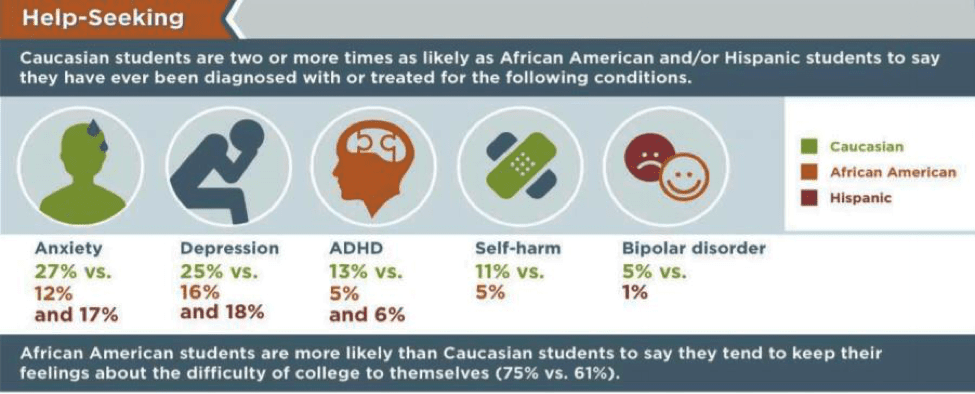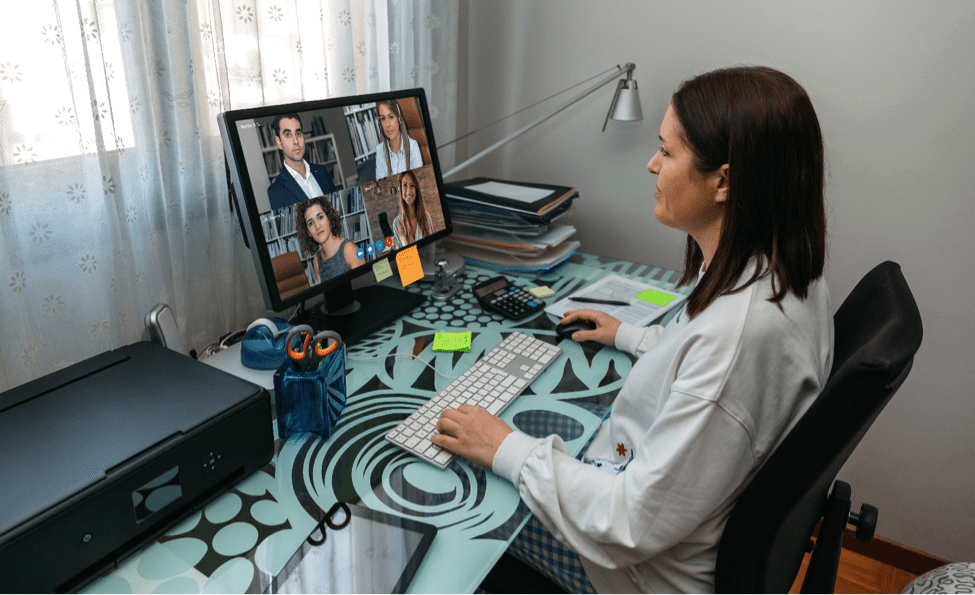Providers
September 16th 10:00 – 11:00 am
Join us in celebrating your Fall 2020 cohort as we embark on the journey to improve our program quality for Houston’s youth!
During the kickoff, we will have a brief meet & greet, and participate in quality focused activities to help new and returning sites engage with the modified process.
For more questions about the modified process or requirements to stay “Committed 2 Quality” please contact Kittra Hewitt at khewitt@hcde-texas.org or Lindsey Hill at LHill@unitewayhouston.org.
Date / Training
September 2020 / YPQI Fall Kick off
October 2020 / Youth Methods Series
November 2020 / Youth Methods Series & Coaching Cohorts
December 2020 / Youth Methods Series & Coaching Cohorts
January 2021 / Spring Cycle YPQI Kick off

HOLOCAUST MUSEUM HOUSTON’s Boniuk Center’s Latino Initiatives invites Latinx artists from the Houston area to participate in Withstand: Latinx Art During Times of Conflict.
This juried exhibition investigates the idea of resistance and its multiple ramifications in the visual arts, as well as the impact of political and/or social conflict on the creative process. The exhibition also explores themes of social justice and human rights in order to inspire conversations sparked by the artwork of Houston Latinx artists. Withstand is meant to be a platform that examines issues that impact the community, fosters dialogue on difficult questions, and ultimately empowers social change through art. Artists must select works that reflect these themes literally or metaphorically.
The show will be on view in conjunction with the inaugural Silverman Latin American Institute fellowship scheduled for Summer 2021. Latinx artists are invited to join the conversation on art as a catalyst of change, and stand together with educators and those interested in advocacy to learn about social justice, human rights, and the Holocaust.
Holocaust Museum Houston builds a more humane society by promoting responsible individual behavior, cultivating civility and pursuing social justice.
Nonprofits play a vital role in our state’s economic landscape. In partnership with United Ways of Texas and OneStar Foundation, the United Way Nonprofit Connection is hosting the Built for Texas Convening on Tuesday, August 25. The goal is to introduce leaders from nonprofit, public, and private sectors with data from the newly released report entitled BUILT FOR TEXAS: THE IMPACT AND OPPORTUNITY OF OUR NONPROFIT SECTOR.
With the 2021 legislative session looming, this is the ideal time to promote the overall impact of our sector, engage in nonprofit advocacy (speaking and standing for our missions), and determine how we can best use our collective voices for the good of our communities. Plan now to join your peers and colleagues for this important conversation. You will also receive your copy of the BUILT FOR TEXAS report, a powerful tool for reinforcing the value of your work.
Social and Emotional Learning Resources
Promoting social and emotional learning (SEL) has become a major focus in schools and youth-serving organizations, as research continues to document the value and importance of such training for both academic and life success. The Resource Finder provides a variety of resources to help you learn about SEL, apply teaching methodologies and assess your efforts.
Learn: Schools have primarily focused on academic learning, but over the past few decades, a growing body of research has shown how efforts to foster social and emotional learning (SEL) in children and youth can make a real difference in children’s lives, both academically and socially, and both now and in the long term. LEARN about what SEL is, why it is important, and the evidence that supports the promotion of social and emotional competence in children and youth.
Apply: How do you foster SEL in children and youth? In this section of the site, we provide links to a broad range of programs, curricula, lesson plans, activities, books, videos and other resources for promoting social and emotional competencies in children and youth.
Assess: How do you evaluate the success of your efforts to foster SEL? In this section of the site, we focus on the importance of “evidence-based practices”, which involves utilizing programs, lessons and activities that have been shown to be effective as well as evaluating the effectiveness of your own efforts.
By learning about mental health and well-being and supporting children who experience mental health difficulties, adults will be better able to create contexts and classrooms in which children feel safe seeking help when needed and in which biases and stigmas are reduced, enhancing children’s feelings of acceptance, belonging and well-being.
Learn: Many mental health disorders first emerge in childhood and adolescence, with an estimated 15-20% of North American children and youth experiencing significant mental health problems. In order to support these students, it is important for adults to foster mental well-being and mental health literacy in their classrooms and schools. This section provides resources for promoting mental health literacy, including learning about mental well-being as well as the mental health disorders that some children and youth faced.
Support: Teachers and adults who work with children and youth play a key role in supporting students who experience mental health difficulties. In this section, find out how you can SUPPORT children and youth by promoting mental well-being in the classroom, reducing the stigma associated with mental health difficulties, increasing students’ willingness to ask for help when needed, and providing accommodations and a context in which troubled youth can achieve optimally.
The COVID-19 pandemic is challenging society on every front – social, political, and economic. Disadvantaged youth populations face significant challenges as their already precarious access to resources and supports dwindles and/or vanishes.
This information hub organizes COVID-19 relevant resources by youth population & supports for parents:
- Week 1: Justice-Involved Youth
- Week 2: English Language Learners (ELL)
- Week 3: Youth in Foster Care (updated 8/13/2020)
- Week 4: Rural Populations
- Week 5: First-Generation College Students
- Week 6: Youth with (Dis)abilities
- Week 7: Resources for Parents
- Week 8: Youth Experiencing Homelessness
- Week 9: Social Emotional Learning (SEL) (updated 8/12/2020)
- Week 10: Resources related to Reopening of Schools
We recognize that many young people fall into multiple categories.
NOTE: New resources are added to this information hub on a continuing basis. To view new additions, click on headers with dates designating updated sections, and new resources will be at the top of each bulleted list.
Additionally, check out AYPF’s work on COVID-19:
The COVID-19 pandemic is taking a terrible toll on the health and well-being of youth and young adults. Already alarming rates of depression, suicide, and anxiety are exacerbated by the isolation, contact restrictions, and economic challenges brought on by the pandemic. Black, Indigenous, and other youth of color (BIYOC); youth involved in the foster care and juvenile justice systems; and other traditionally underserved youth already are impacted at levels worse than their white or non-system involved peers, further hindering their ability to survive and thrive during the pandemic. As traditionally underserved youth navigate the pandemic, all systems need to develop and implement innovative strategies to address their existing and emerging health and mental health needs.
Addressing Mental Health Disparities During the Pandemic

Before COVID-19, the American Psychological Association estimated that 15 million youth have a diagnosable mental health disorder. Over 80 percent of youth in need of mental health services do not receive services in their communities, with BIYOC and LGTBQ youth the most likely groups not to receive needed care. School-based health centers in urban areas were 21 times more likely to provide mental health services than community-based providers. With schools closed, youth who receive their mental health services in their schools now need to find alternatives to care.
School-based mental health providers such as school counselors, nurses, social workers, and psychologists remain the first point of contact for students who are depressed, isolated, anxious, and now those traumatized by the pandemic. The American School Counselor Association and the National Association of School Psychologists developed a school reentry guide advising their members to develop cross-system plans that engage school and community resources. A key recommendation is to map available resources and needs to address short- and long-term needs, including repositioning staff to where they are needed most. School leaders are also learning how to leverage technology to meet the social, emotional, and mental health needs of middle and high school students.

Establishing partnerships with community-based mental health providers is a strategy already increasingly used to meet the mental health needs of BIYOC students. In Washington, DC, the Achievement Preparatory Academy is partnering with the AprilMay Company, Inc., a local behavioral health organization, to provide social-emotional and mental health services to their students. Teachers and counselors recognized the pandemic added multiple stressors to families already struggling to meet basic needs. To help students and families cope, they expanded access to mental health services, from the individual and small group services offered prior to the crisis, to any student, teacher, or family member using telemedicine resources.
Schools are also leveraging resources from organizations like The Trevor Project to supplement the services they provide for at-risk students. In the second annual National Survey on LGBTQ Youth Mental Health 2020, The Trevor Project reports almost 70 percent of LGBTQ youth have experienced anxiety in the past two weeks, and nearly half report they wanted but were not able to access mental health services in the past year. To address these and other needs, The Trevor Project offers a wide range of services, including the TrevorLifeline for crisis counseling, TrevorChat and TrevorText which provide access to counselors, and TrevorSpace, whichis an online international peer-to-peer community for LGBTQ young people and their friends.
The Steve Fund provides support for college-age BIYOC students through its crisis text line. They, along with their partner The Jed Foundation, assist higher education institutions in developing an Equity in Mental Health Framework composed of actionable strategies they can implement to bridge mental health disparities facing students of color. The framework was developed in response to data they collected that revealed that college students of color were almost twice as likely not to seek help when they feel depressed or anxious compared to white students. They also found that only 28 percent of students of color found their campuses inclusive, compared to 45 percent of their white peers. As a result, nearly half reported feeling isolated on campus. These data reveal that attention to the mental health needs of students of color persists into the higher education learning experience.

System-Involved Youth at High Risk for COVID-19
For the roughly 48,000 youth held in juvenile detention facilities across the United States, the COVID-19 pandemic is also proving especially concerning. Black and Indigenous youth are overrepresented in juvenile facilities, with Black boys and Black and Indigenous girls, extremely overrepresented relative to their share of the total youth population. Lesbian, gay, bisexual, transgender, and questioning (LGBTQ) youth, and youth currently or previously involved with the foster care system are also overrepresented in the juvenile justice system. Even before the pandemic, youth detention facilities failed to adequately address the health and mental health needs of BIYOC and LGBTQ youth. These uniquely vulnerable youth often come to juvenile facilities with a host of pre-existing needs such as physical or sexual abuse, accidents, serious illness, and violence. These traumatic events often lead to depression, anxiety, and post-traumatic stress disorder. Unfortunately, most facilities are ill-equipped to address their needs with only 53 of 3,500 juvenile justice residential facilities in the United States having received accreditation for the health care they provide. Coincidentally, calls to end the Medicaid Inmate Exclusion would require standards to ensure quality health care services in juvenile and adult detention facilities.
While many youth have been released or diverted from detention as a result of the pandemic, the American Academy of Pediatrics (AAP) joins juvenile justice reform advocates in the call for incarcerated youth to receive “…special consideration in response to the COVID-19 pandemic.” Specifically, the Academy is asking that state agencies craft pandemic plans that release youth from custody who can be safely cared for in their communities. Before they are released, a comprehensive transition plan should be developed to include screening for health and mental health needs and restoring health benefits lost during incarceration. Community-based organizations providing youth reentry services should receive additional funding to provide virtual and in-person services, with appropriate safety precautions. For the youth who remain incarcerated, every effort should be made to ensure their safety, including improved hygiene practices, social distancing that is not solitary confinement, coronavirus testing, and a continuation of any health and mental health services they were receiving before the pandemic.

Resources for Policymakers and Practitioners
The undeniable disproportionate impact of COVID-19 on Black, Indigenous, and other youth of color (BIYOC); youth involved in the foster care and juvenile justice systems; and other traditionally underserved youth requires a targeted response. Federal, state, and local governments must enact policies and implement evidence-based programs that protect and support vulnerable youth during and after the immediate pandemic crisis. AYPF has created a COVID-19 Information Hub that provides useful resources for youth most at risk. We will continue to update this information hub and invite your active participation in planned learning events as we explore strategies from the AYPF peer network.
- Week 1: Justice-Involved Youth
- Week 2: English Language Learners (ELL)
- Week 3: Youth in Foster Care
- Week 4: Rural Populations
- Week 5: First-Generation College Students
- Week 6: Youth with (Dis)abilities
- Week 7: Resources for Parents
- Week 8: Youth Experiencing Homelessness
- Week 9: Social Emotional Learning (SEL)
- Week 10: Resources related to Reopening of Schools
READYNEWS: News & resources from the Forum and the field about collaborative work to get young people ready by 21.
In this Issue:
OST Program Quality
Data
Science of Learning and Development
Program Reopening
Disruption Creates Opportunity: We Must Do Better Together
Blog by Karen Pittman and the Readiness Projects Partners
Every aspect of community life has been disrupted, from the economy to the family. Disruptions on multiple fronts have wreaked havoc with young people’s rhythms, relationships, and responsibilities. Coordinated responses are desperately needed, especially among the people, places, and spaces where young people spend their time.
Our teams have reviewed dozens of district re-opening plans and expert guidance and we see two important themes:
- An acknowledgment that experiences and relationships drive learning. This is a basic takeaway of the science of learning and development. When learning is all or partially happening virtually, relationships are different and need to be augmented for children and youth to succeed and thrive. There’s a fundamental equity issue here: with school buildings closed, youth in low-income communities are even more disconnected from the supports and services they need. This calls for more adults from families, afterschool programs, and community partners to connect, support, and advocate for youth.
- An expressed desire from schools and districts (and sometimes funding requirements) to “partner with families and community.” We all know, however, that eloquent language is often followed up with limited execution, sometimes for valid reasons. The missed opportunities for school/community partnership were masked when school was in full swing eight hours a day, five days a week, ten months a year. Now partnership is an imperative. Community partners have assets – buildings, staff, experience, connections – that are making a difference and can be put to better use.
OST Program Quality:
Supporting Quality Learning Experiences in Virtual OST
Free Webinar
Thursday, August 13
1:00-2:00 PM EDT
Join a discussion about program quality in virtual summer and afterschool programs with three leading national organizations in the quality improvement, coaching, and measurement space. Questions include:
- How does quality differ in-person and online using established dimensions?
- Do all dimensions matter equally; are new ones needed?
- How should we account for stress in both students and staff?
- Can the frameworks support planning virtual environments? If so, how?
Take advantage of the collective knowledge of three organizations that are leading efforts to support high quality virtual youth programs through continuous improvement approaches.
Panelists include:
- Gil Noam, director of The PEAR Institute
- Georgia Hall, director of the National Institute on Out-of-School Time (NIOST)
- Kim Robinson, managing director of the David P. Weikart Center for Youth Program Quality and executive vice president of the Forum for Youth Investment
Data:
2020 KIDS COUNT Data Book Now Available
The 31st edition of the Annie E. Casey Foundation’s KIDS COUNT® Data Book describes how children across the United States were faring before the coronavirus pandemic began.
This year’s publication continues to deliver the Foundation’s annual state rankings and the latest available data on child well-being based on the latest available data for 16 key indicators. It also identifies multi-year trends – comparing statistics from 2010 to 2018 – the latest year of data available. As always, policymakers, researchers, and advocates can continue using this information to help shape their work and build a stronger future for children, families, and communities.
Data over a recent period of eight or so years reveal encouraging trends in child well-being nationally, with improvements documented in 11 out of the 16 indicators. In 2018, more parents were economically secure and lived without a high housing cost burden. In addition, more teens graduated from high school and delayed childbearing and children’s health insurance coverage continued to be something to celebrate.
Science of Learning and Development:
Karen Pittman Explores the Science of Learning and Development in the COVID-19 Era
With so much uncertainty and so little time to reflect, young people across the country- and the adults who care for them- are asking: how can I make meaning of the COVID crisis? To help answer this question, the Science of Learning & Development Alliance has interviewed education leaders to learn how this science can be used to navigate this pandemic and its implications for young people, their communities, and the systems that surround them.
The Forum’s president and CEO Karen Pittman was recently highlighted in a discussion on how to equip young people with the right set of skills to succeed.
An excerpt:
Q: What’s one piece of concrete advice drawing from the science of learning and development that you would elevate for every educator or other adult supporting young people?
Karen: My advice is to start with relationships, and understand that developmental relationships are more than just caring. It starts with caring, but it really moves through to make sure that young people are cared for and feel that they have a connection. It moves into making sure that young people have a sense of agency, that we’re sharing power with them, that we are really helping them think about how to be challenged and how to grow. But we still have to have the learning component. We still have to have the content. And if you are an adult who is not an official teacher, there is still content that can be delivered. It is important to support them.
Read the interview.
Visit the Making Meaning series page.
Program Reopening:
Afterschool Alliance Releases Guidance for Reopening Programs
As communities and states begin to emerge from lockdowns, afterschool and summer learning programs are developing plans to welcome youth back through their doors. There are significant considerations programs need to undertake in order to successfully and safely reopen. To help afterschool and summer learning programs through this process, the Afterschool Alliance has curated a number of resources, guides, and examples to help develop a plan to safely care for children and youth.
A key tool for reopening programs is A School Year Like No Other Demands a New Learning Day: A Blueprint for How Afterschool Programs & Community Partners Can Help. The Forum recently signed on to a statement of support for this blueprint.
Harris County Youth Collective is growing our team of Youth and Community Specialists (YCS). YCS are part-time staff with lived experience in youth serving systems. These positions work both on staff and in the community to ensure that people most affected by the systems are included in the work toward improving services and outcomes for youth who are or have been dual status, or involved in the juvenile justice and child protective systems.
Please read the full YCS description, expectations, qualifications, and benefits in the attached PDF. Please find the application here: Harris County Youth Collective – Youth and Community Specialist Application

| Join ADL’s Central Division for our summer series webinar on how hate speech and hate crimes have impacted our LatinX community. How did the El Paso shooter become radicalized and how can we keep hate speech against the LatinX community from becoming hate crimes? Join our panelists as we remember the victims of the August 3, 2019 El Paso shooting and discuss these and other relevant issues. Participants include: Al Maldonado – District Director, LULACOren Segal – Vice President, ADL Center on ExtremismGabriel Acuna – Member of the CommunityJosh Lefebvere – Firefighter and ParamedicModerated by Dena Marks, Sr. Associate Regional Director, ADL Southwest REGISTER TODAY! SPECIAL THANKS TO OUR SUPPORTING PARTNERS |

Browse Resources
Resources for Providers
- Out 2 Learn Quality Kick-off Meeting September 16th 10:00 – 11:00 am – Enroll now!
- Girl Scouts of San Jacinto -Adult Financial Freedom Workshops
- Open Call for Houston Latinx Artists
- United Ways of Texas – Built for Texas Convening
- The University of British Columbia – Social & Emotional Learning Resource Finder
- American Youth Policy Forum – COVID-19 Response Information Hub
- American Youth Policy Forum – How COVID-19 Affects Mental Health Disparities for Vulnerable Youth
- Ready News: News from the Forum and the Field about Collaborative Work to get Young People Ready by 21
- Harris County Youth Collective – Youth and Community Specialist Application
- Anti-Defamation League – Hate Speech and Hate Crimes Targeting the Latinx Community Webinar
